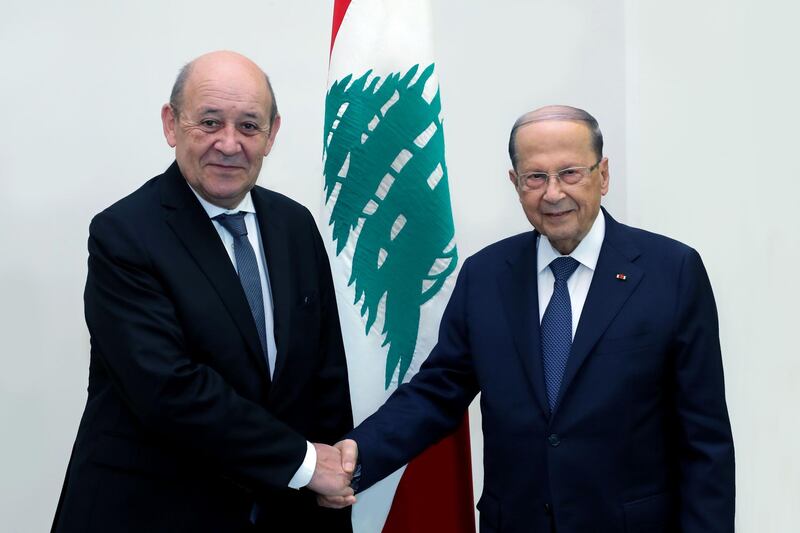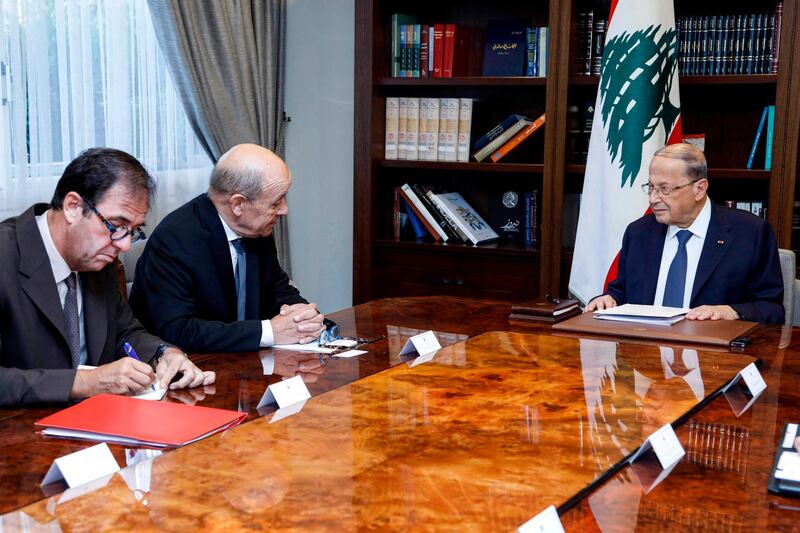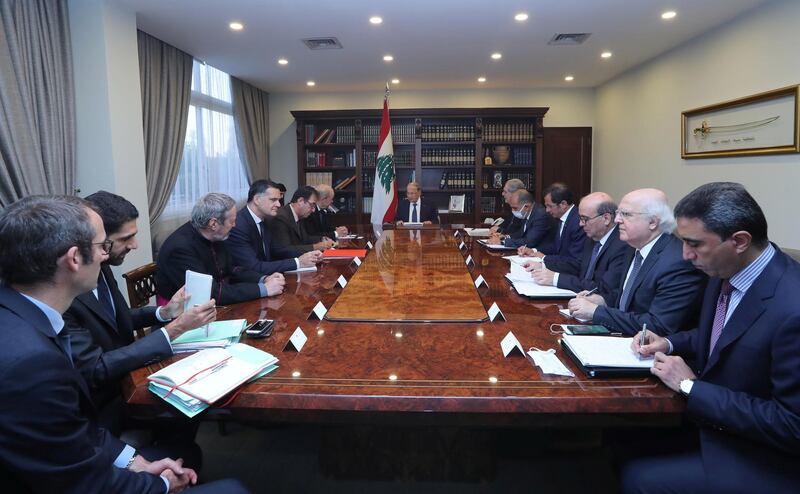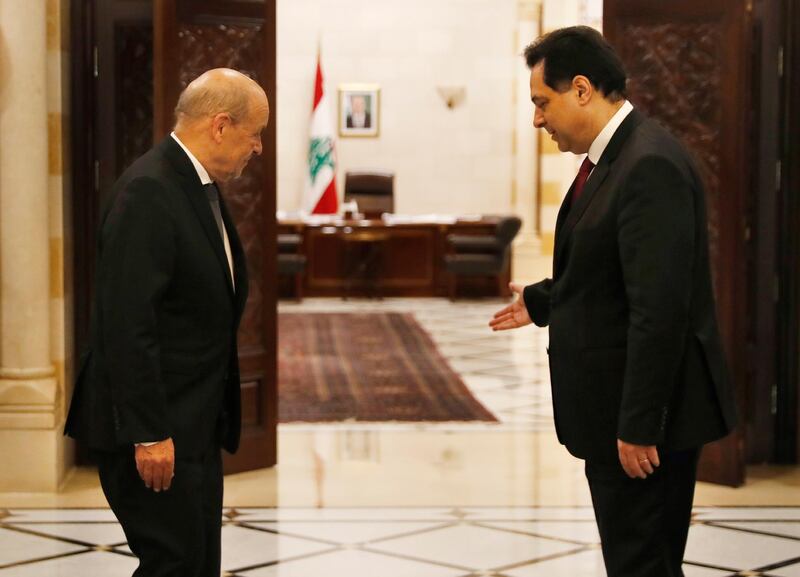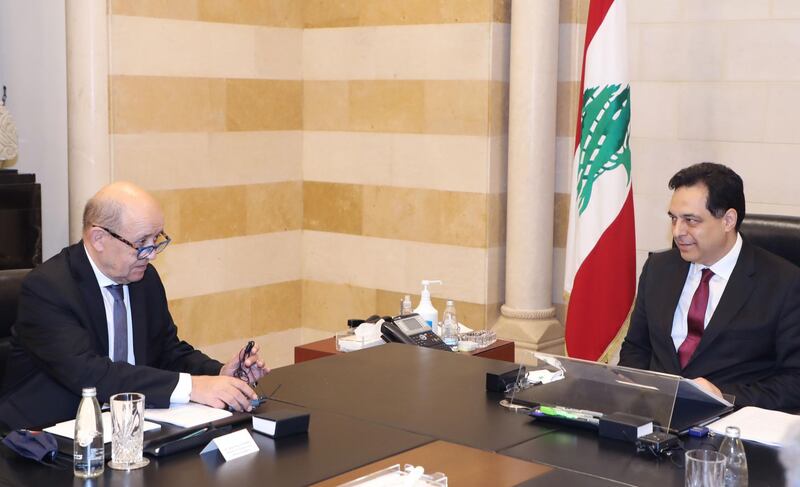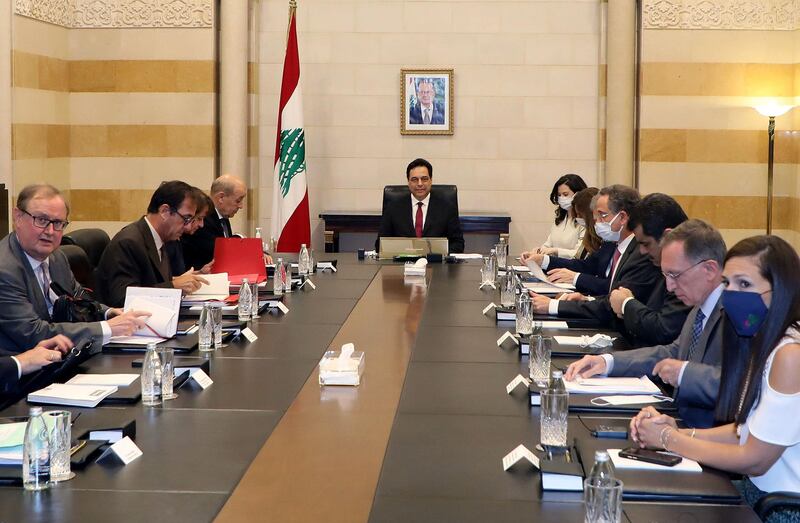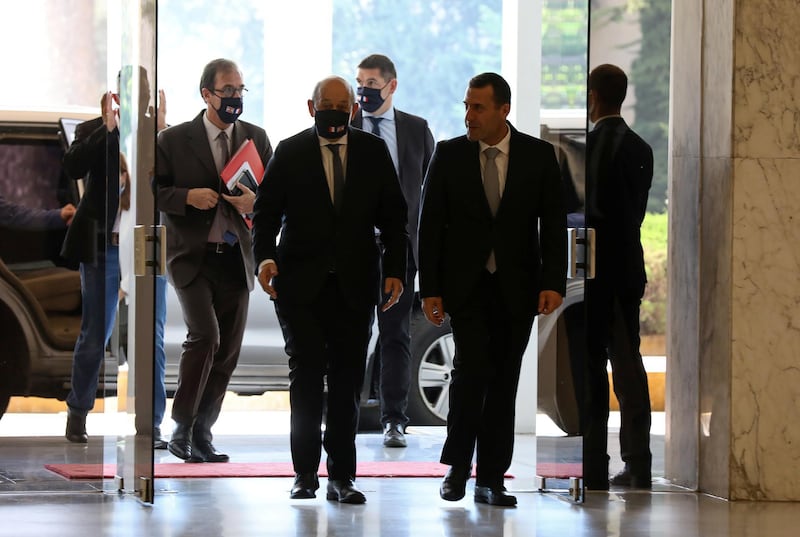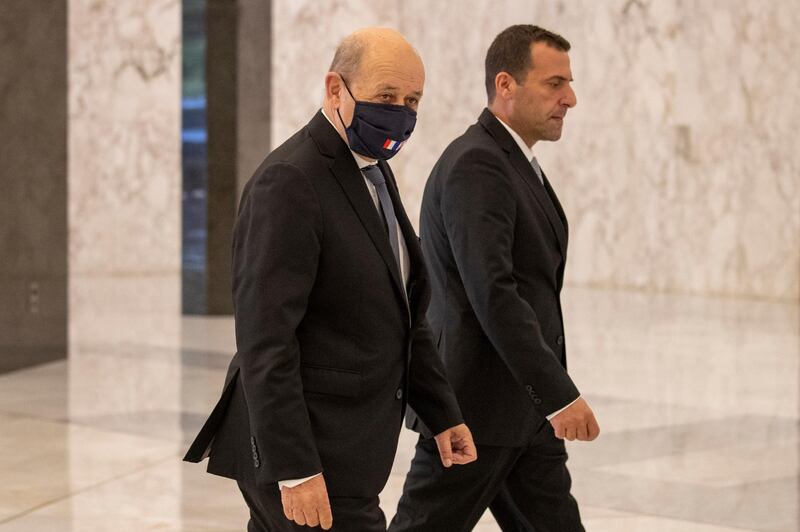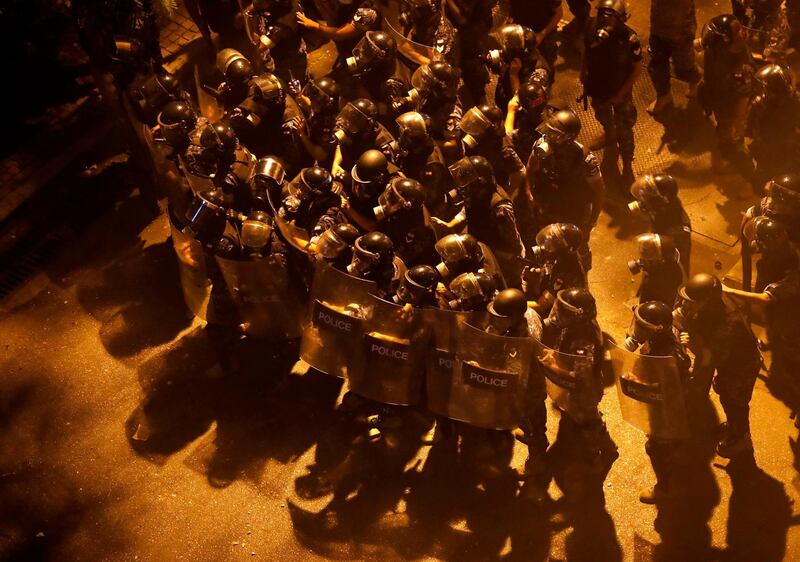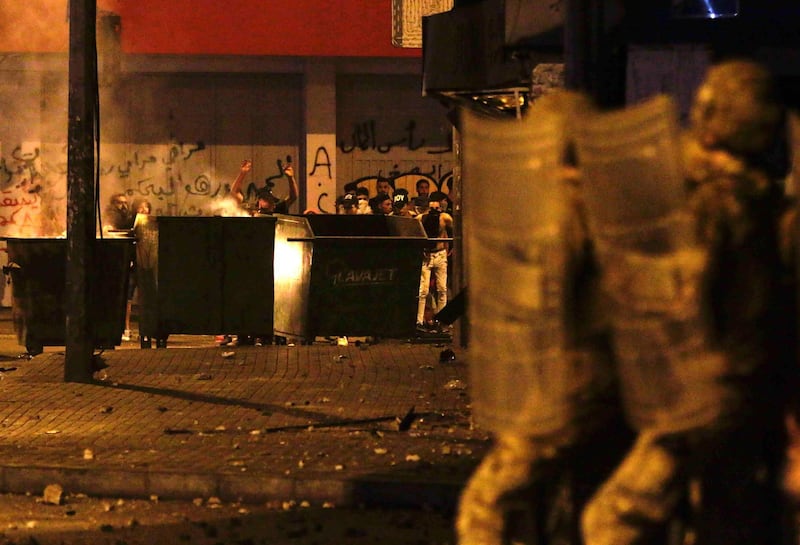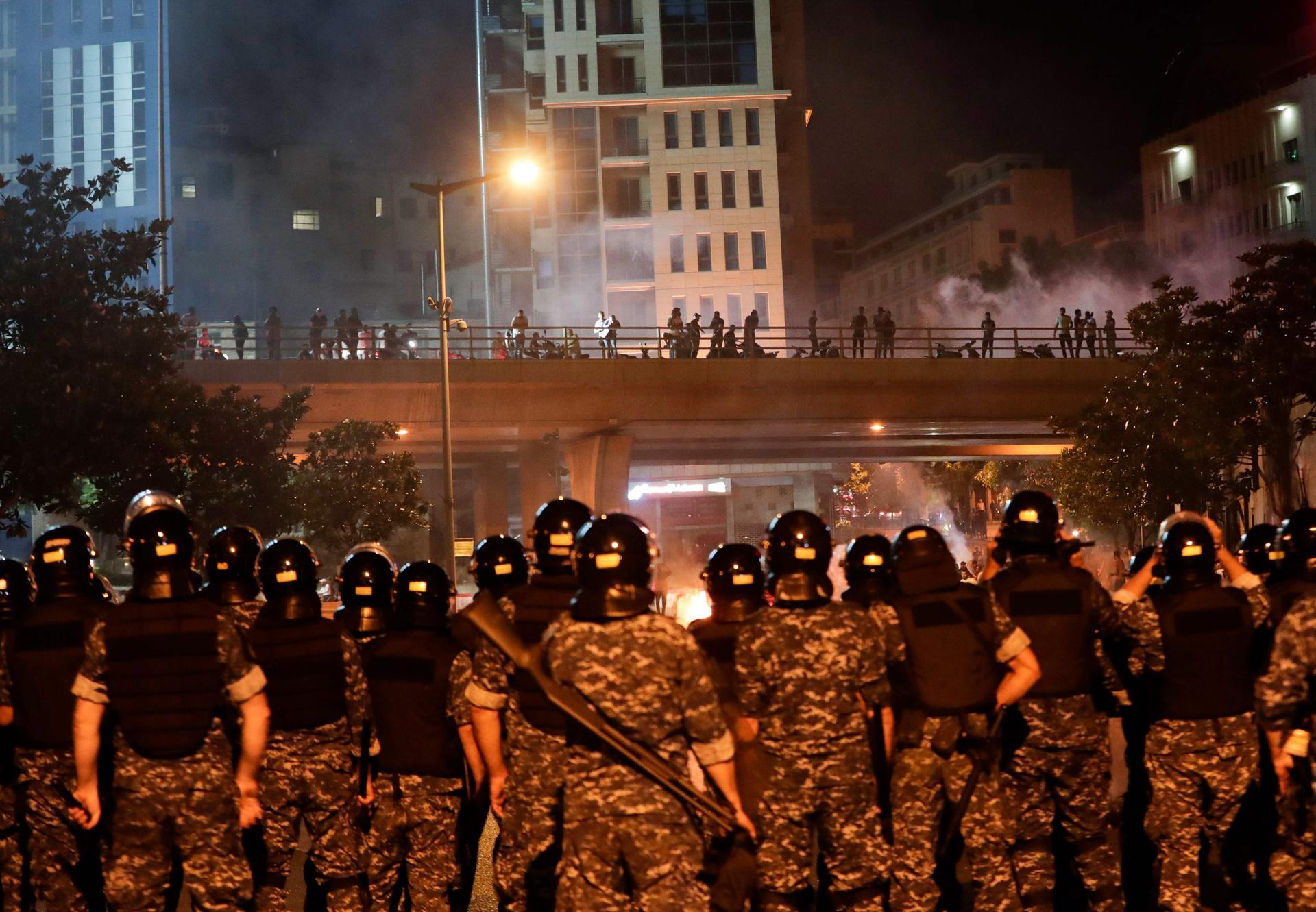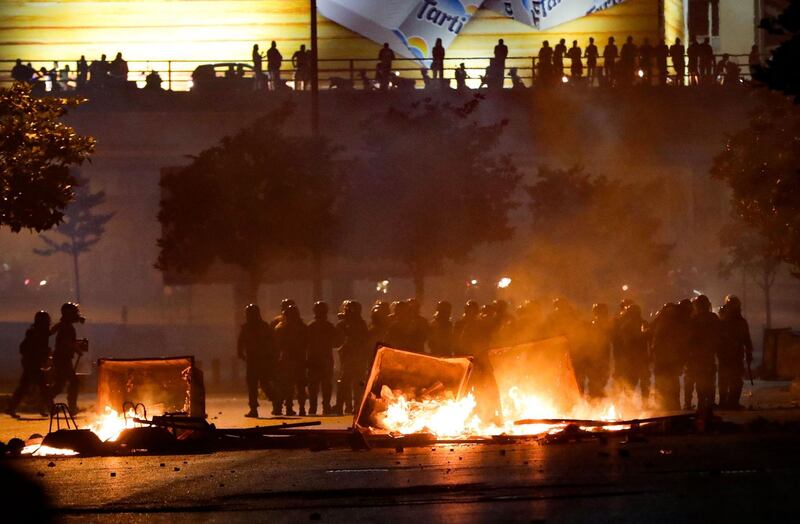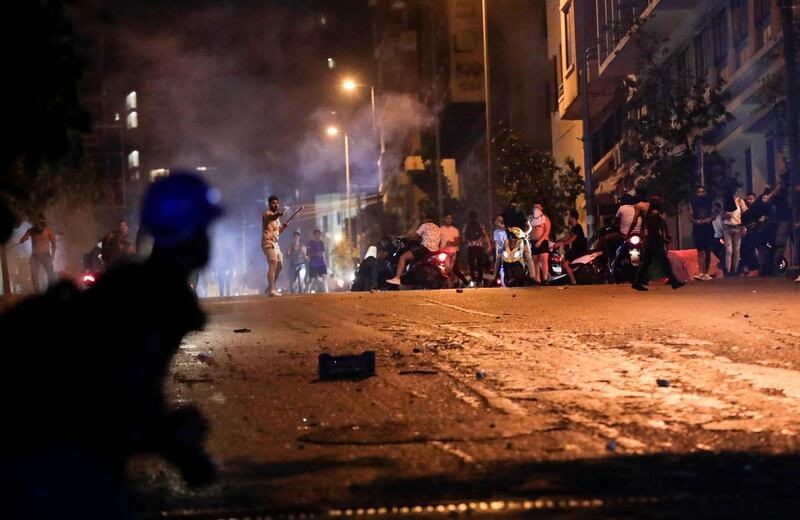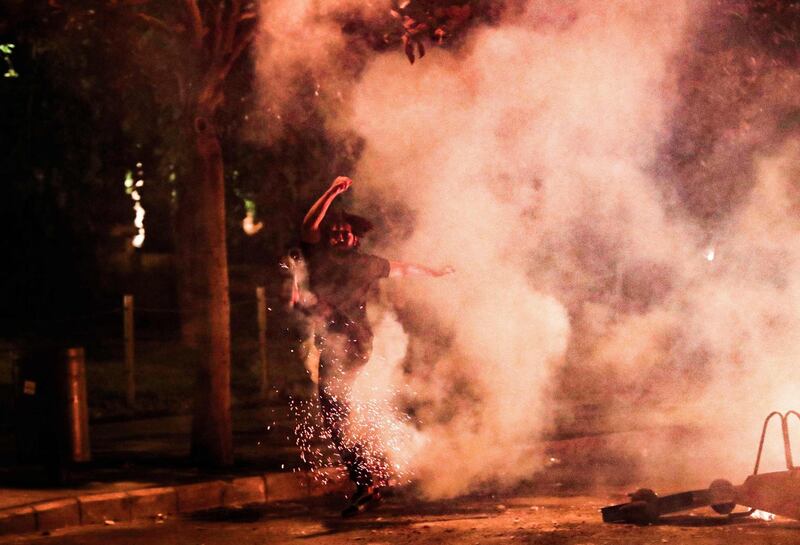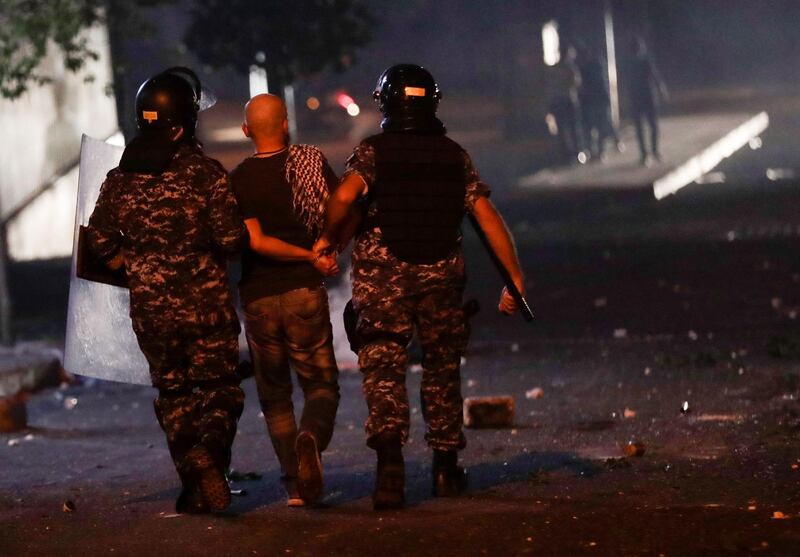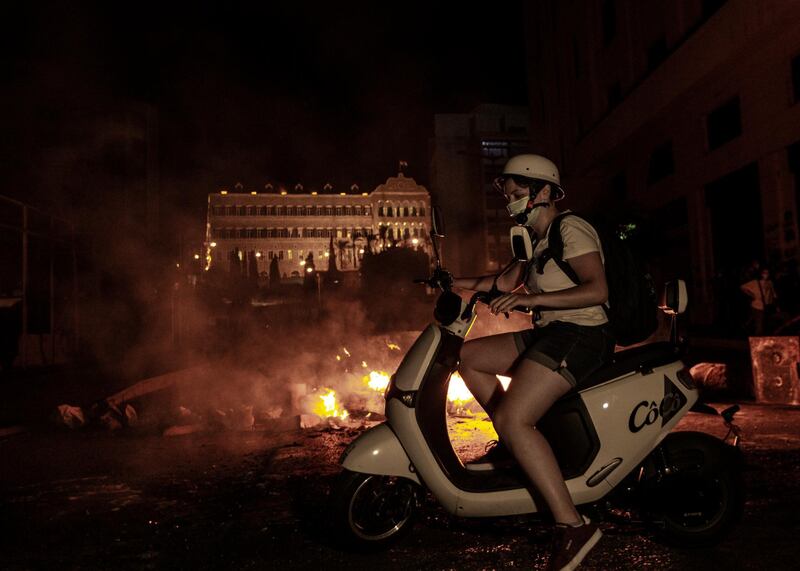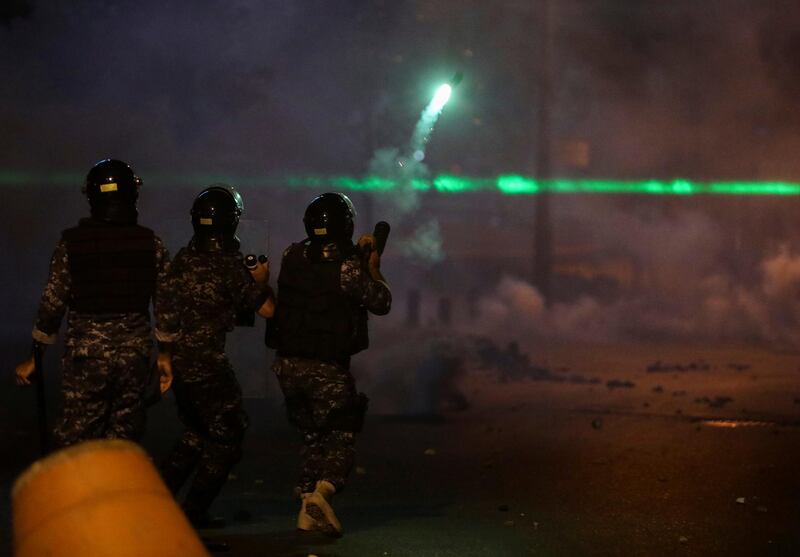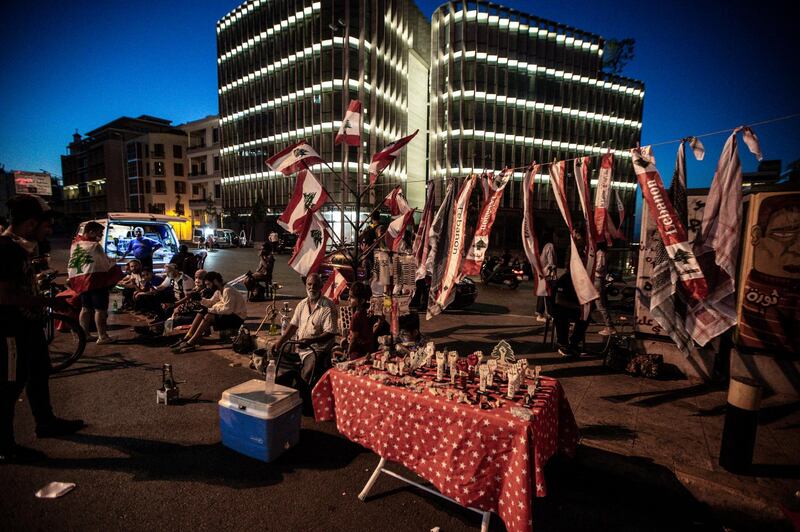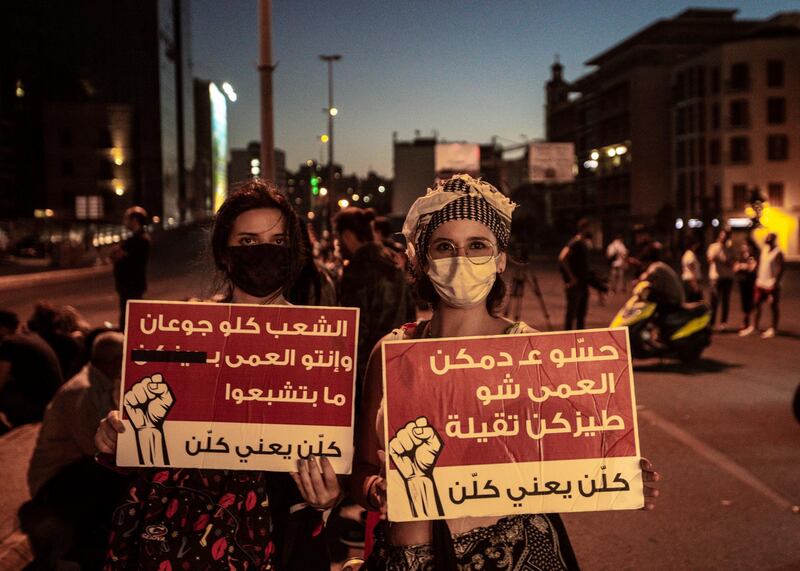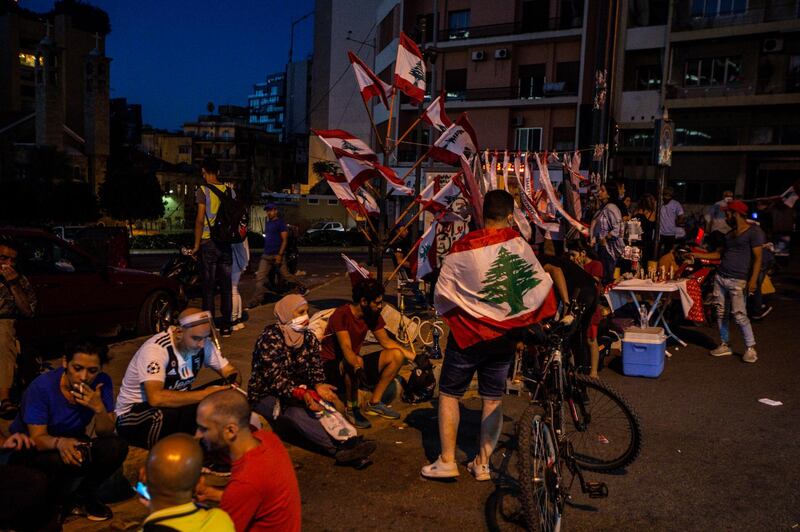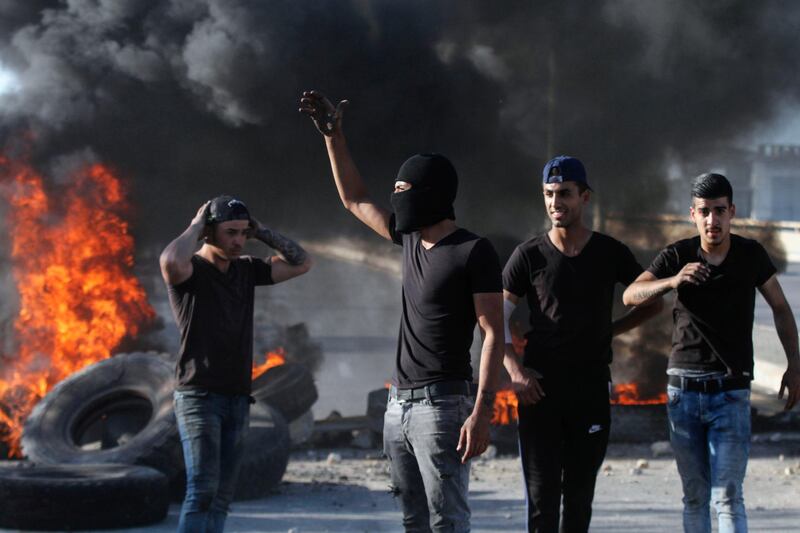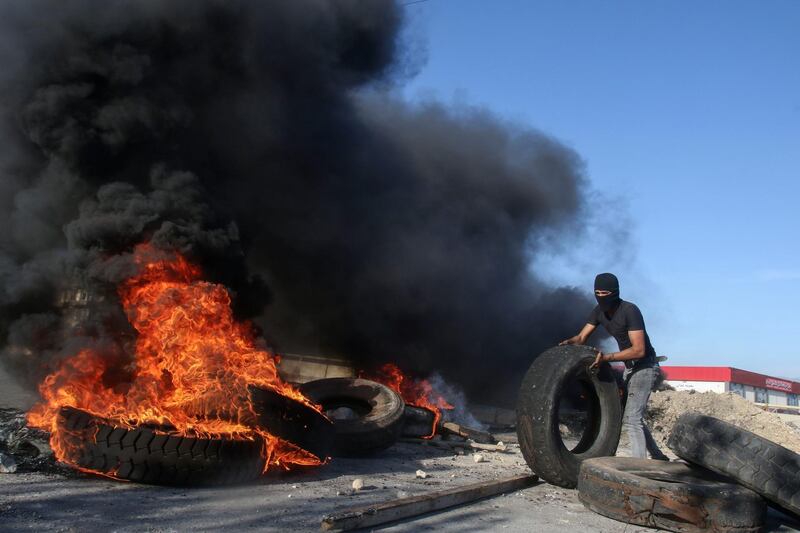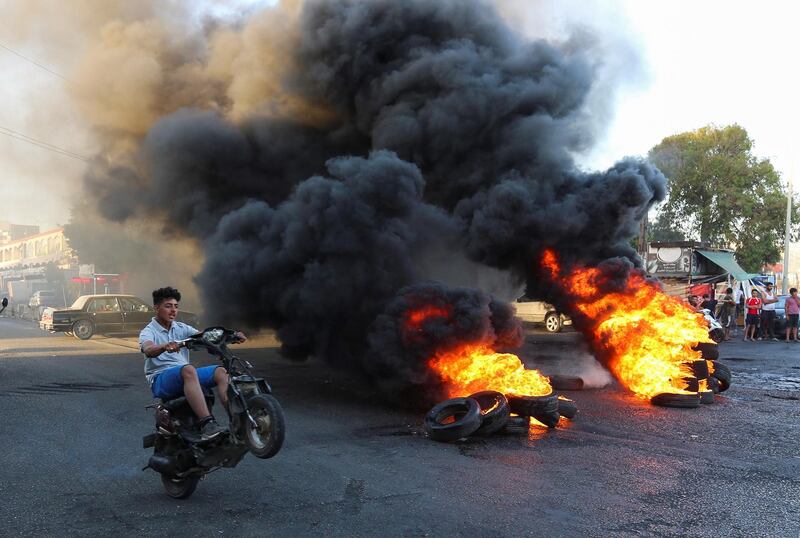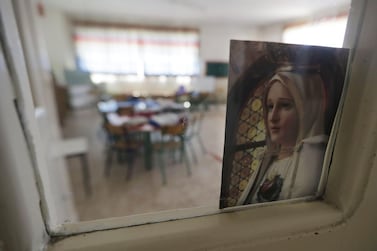French Foreign Minister Jean-Yves Le Drian on Thursday urged Lebanon to relaunch negotiations for an International Monetary Fund bailout and reiterated France’s support for Lebanon in the face of its worst economic crisis
Mr Le Drian arrived in the cash-strapped country on Wednesday evening for a 36-hour visit aimed at discussing ways out of the crisis.
Speaking alongside his Lebanese counterpart Nassif Hitti, Mr Le Drian said that "there is no alternative" to an IMF bailout for Lebanon to recover from its economic crisis. "My message to Lebanon is: help us to help you," he said, repeating a statement he made in the French Senate in early July.
Negotiations with the IMF started in May but have stalled in the past weeks. IMF Managing Director Kristalina Georgieva said Lebanon needed more "unity of purpose", and that the situation "breaks her heart."
"I am here to confirm France's support for Lebanon and the Lebanese people. There is a shared history between us and Lebanon," said Mr Le Drian, referring to France's 1920-1943 mandate over Lebanon.
“I came to bring you a message,” continued the French minister, according to Lebanon’s state-run National News Agency. “The time is critical ... We want to avoid a crisis that would change social co-existence in Lebanon.”
The small Mediterranean country has a unique power-sharing system along sectarian lines. Roughly one third of its population is Christian, one third Sunni Muslim and one third Shiite Muslim.
“The solutions to fix the situation in Lebanon are found in the decisions of the Cedar conference,” said Mr Le Drian, referring to an April 2018 donor conference organised by France. The international community, including western countries and international institutions such as the World Bank, pledged more than $11 billion in grants and soft loans to Lebanon in exchange for much needed reforms. But the money remains frozen as Lebanon has yet to implement these reforms because of internal political disagreements.
Earlier on Thursday, Mr Le Drian met Lebanese President Michel Aoun, Prime Minister Hassan Diab and Parliament Speaker Nabih Berri.
President Aoun told Mr Le Drian that “Lebanon looks forward to France’s help in the process of reforms and fighting corruption”, the NNA reported.
He complained to Mr Le Drian about the repercussions of the nearly decade-long civil war in Syria, which he claimed caused losses of more than $40bn to Lebanon. More than one million Syrians fled to Lebanon and borders were closed, hindering trade.
Lebanese officials routinely blame Syrian refugees for the country’s economic woes but analysts say that responsibility also lies with Lebanon’s leaders, who have managed the country inefficiently and allowed corruption and nepotism to thrive.
President Aoun highlighted his efforts in fighting corruption, including an audit of the state’s finances. He said there had been “difficulties and obstacles facing the fight against corruption because of the presence of many people involved in it who exert strong pressures to stop [the fight]”.
He asked France to support the mandate of the United Nations Interim Force in Lebanon, which patrols the border with the country’s long-term enemy Israel, when it comes up for extension in late August. Washington has warned that it could halt funding. “French support for Lebanon is essential at this stage and is mutually beneficial to both countries,” Mr Aoun said.
Mr Le Drian conveyed a verbal message to Mr Aoun from French President Emmanuel Macron in which he confirmed that “France stands by Lebanon in these difficult circumstances as it always has done throughout history”.
Local newspaper L'Orient-Le Jour reported that Mr Diab asked Mr Le Drian for help in reforming the electricity sector.
Since the end of the 1975-1990 civil war, Lebanon has suffered from chronic electricity shortages which have worsened in the past weeks because of a fuel shortage. National electricity company Electricite du Liban costs the state nearly $2bn a year in subsidies.
Mr Diab thanked France for its recent announcements of financial aid to Lebanese francophone schools. "We hope this help will include public schools," he was quoted as saying by L'Orient-Le Jour.
Lebanon is mired in its worst economic crisis in decades, marked by a steep currency fall and high inflation that have plunged nearly half of the population into poverty.
The crisis has sparked mass protests since October against a political class accused of being incompetent and corrupt, and led to tens of thousands losing their jobs or part of their income.
After the country defaulted on its debt payments for the first time in March, the government pledged reforms and two months ago started talks with the International Monetary Fund towards securing the release of billions of dollars in aid, but the discussions have stalled.
Earlier this month, Mr Le Drian said he was "very worried" by the lack of progress on reforms required to secure foreign financial assistance.
Lebanon's government said it needed more than $20 billion in external funding.
